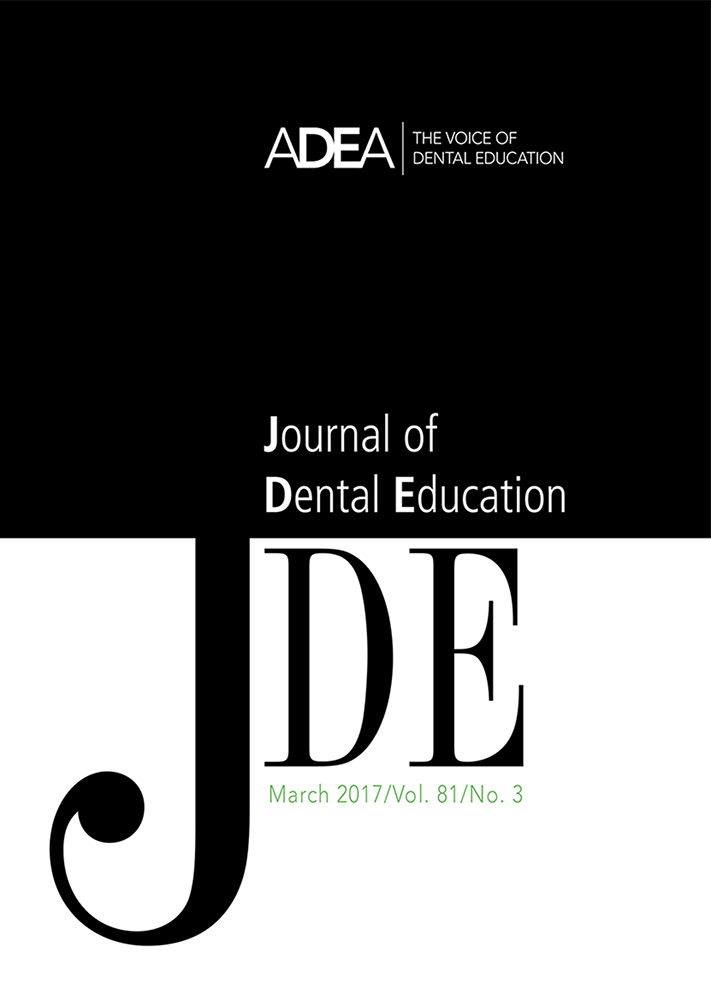Identifying Noncognitive Skills That Contribute to Dental Students’ Success: Dental Faculty Perspectives
Abstract
The aims of this study were to identify noncognitive factors that dental faculty members perceived to contribute to dental students’ success and to assess dental faculty members’ ratings of the relative importance of these factors to academic performance, clinical performance, and overall success. Out of 184 eligible faculty members at one U.S. dental school, 43 respondents (23.3%) completed a survey in 2015–16. The survey asked respondents to rank the importance of seven noncognitive factors to academic performance, clinical performance, and overall success. Descriptive analysis was conducted to determine the ratings on importance of each noncognitive factor. Two additional open-ended questions asked faculty members to 1) think of dental students who performed very well and list the noncognitive factors they believed contributed to those students’ success and 2) identify the two most important of those factors that contributed to success. Qualitative analysis was conducted to identify themes in the open-ended responses. The respondents rated professionalism and preparedness highest in importance for overall success. Preparedness was rated highest in importance for academic performance, and communication was highest in importance for clinical performance. Six themes were identified in the open-ended responses: communication/interpersonal skills, approach to learning, personal characteristics, professionalism, diverse experiences, and technical abilities. On both open-ended items, the most frequently cited noncognitive skill was communication/interpersonal skills followed by approach to learning. In this study, dental faculty members perceived communication, preparedness, and professionalism as important skills contributing to dental students’ success.




